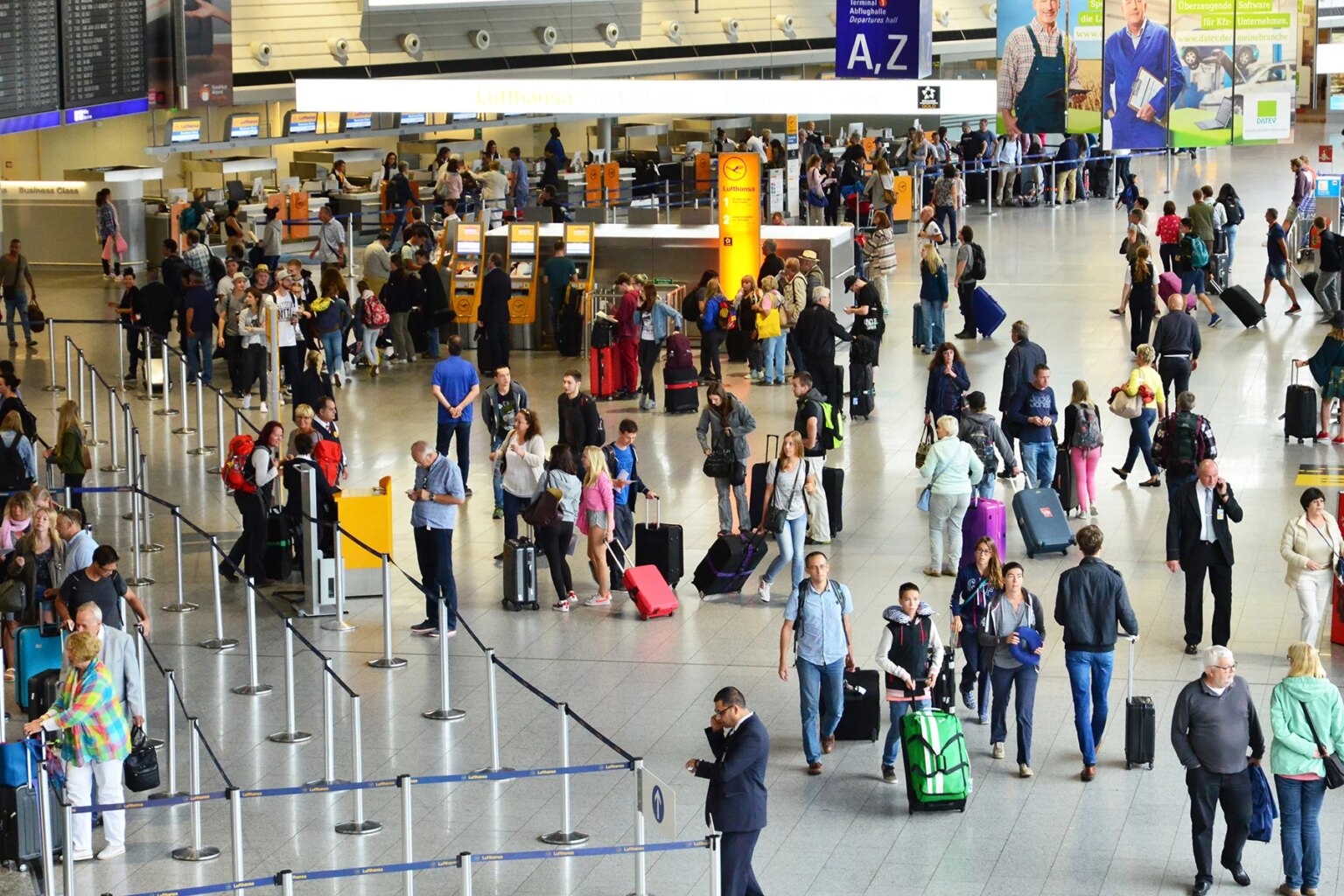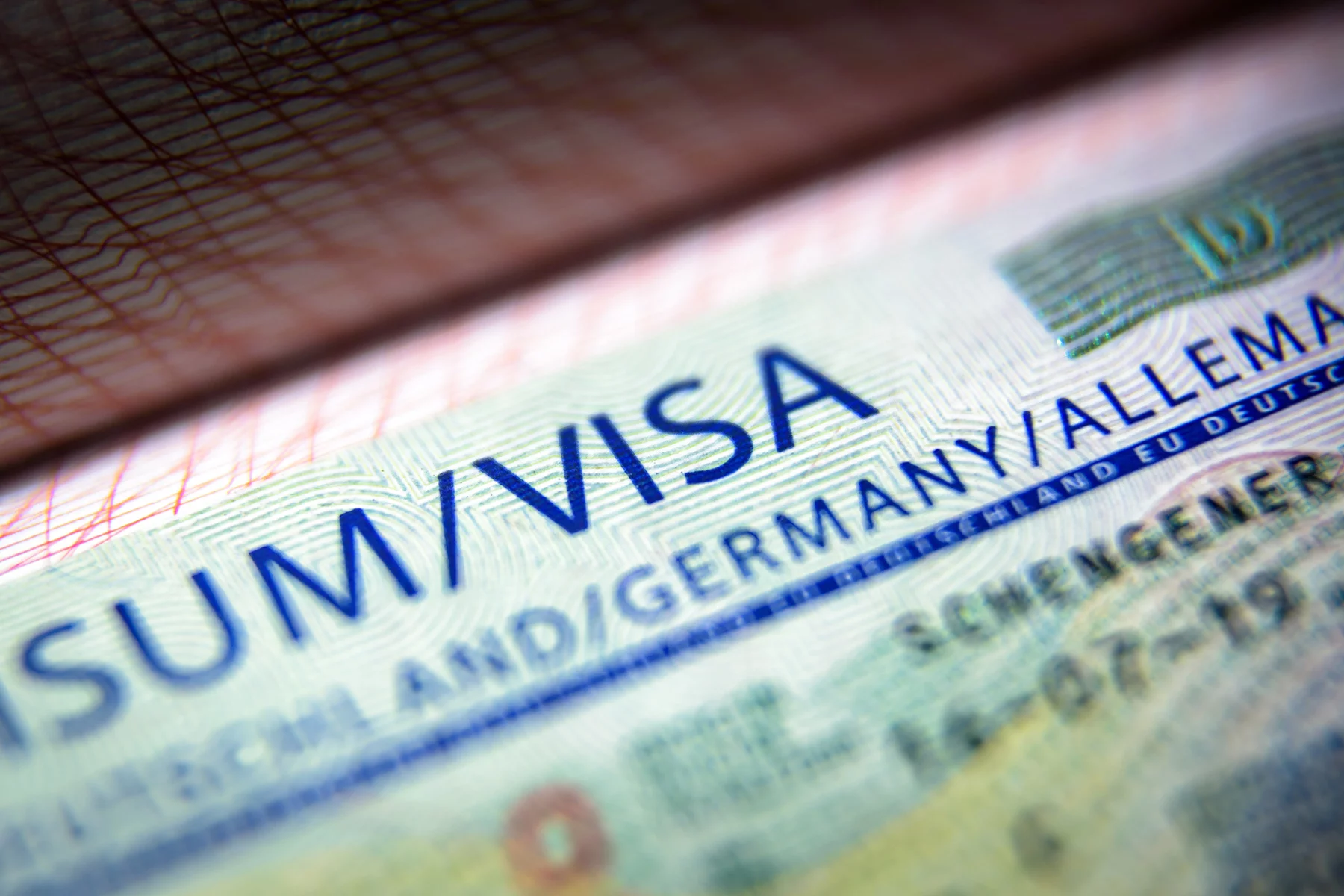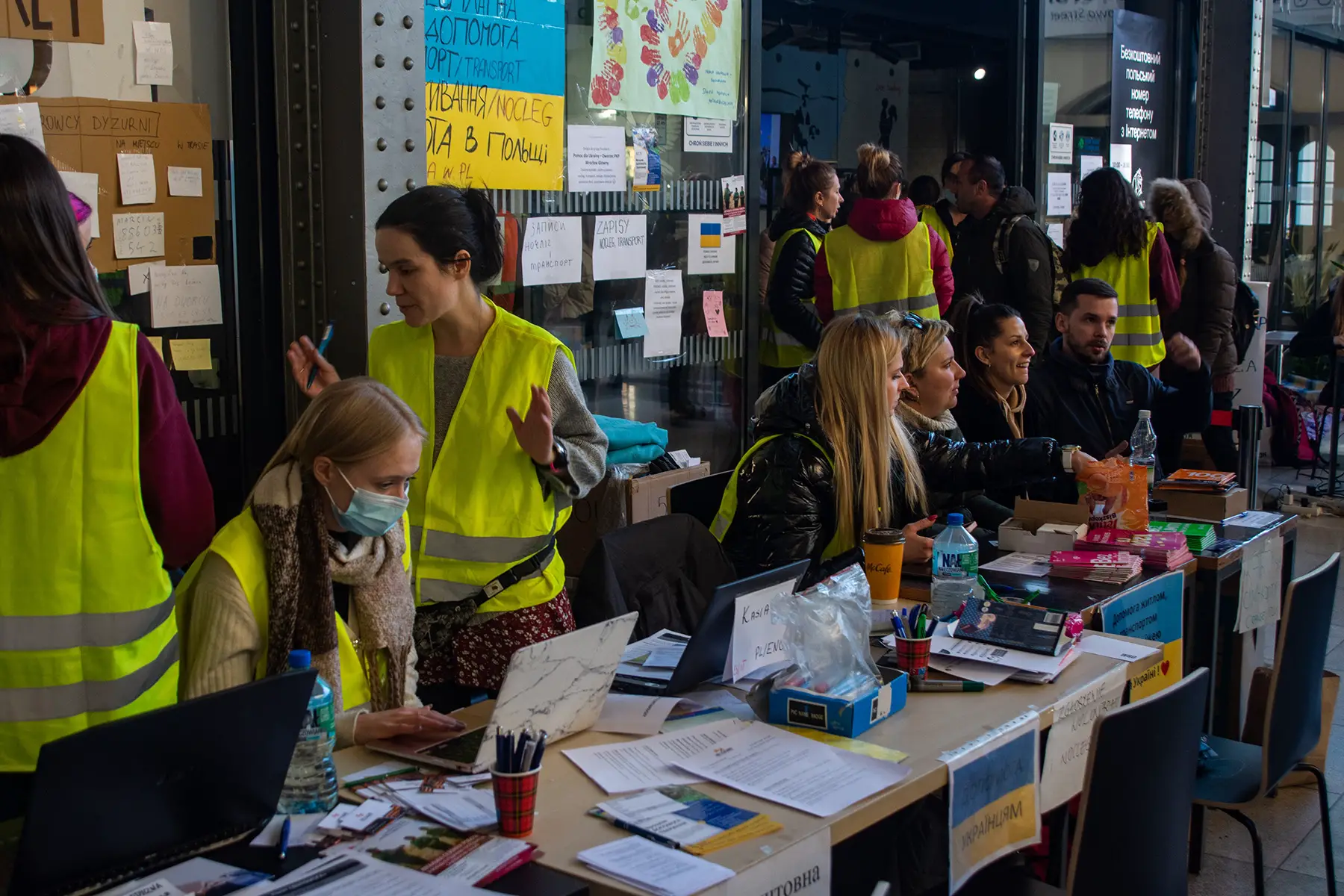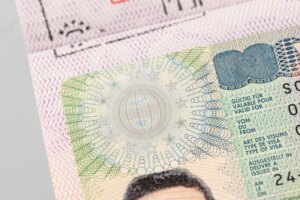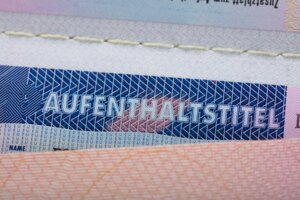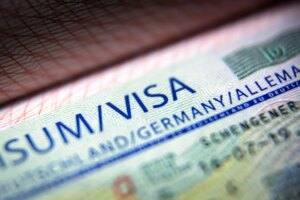For many, one of the hardest things about moving abroad is being away from your loved ones. One way to overcome this is by moving your family to your new country. A family reunion visa allows those with relatives in Germany to join them. There are different visas depending on the relationship and the residence status of the family member already living in Germany. So, how do you decide which visa you need, and how do you apply?
If you are considering joining family in Germany sometime soon, read on to learn about:
- Family reunion visas in Germany
- Who can move to Germany to join family?
- Family visas to join German nationals in Germany
- Visas to join other EU/EFTA nationals in Germany
- Family reunion visas to join third-country nationals in Germany
- Short-term visits to family members in Germany
- Joining family members who only have a temporary visa in Germany
- Family visas to join refugees or asylum seekers in Germany
- When family members arrive in Germany
- In the event of divorce or death of a family member in Germany
- Family visa complaints and appeals in Germany
- Useful resources
The Relocator
Starting a new life in Germany? Take the stress out of moving to your new home by finding the right international removals options with The Relocator. Compare a number of trusted international movers and get a free quote in minutes. Remove some of the hassles of moving abroad, get to Germany with The Relocator.
Family reunion visas in Germany
Family visas are one of the three main long-stay German visa types, along with work visas and study visas. Certain relatives can apply to relocate to Germany to live with family members already residing in the country.
As in many other countries, this is known in Germany as family reunion or family reunification. There are various types of family visas relating to different relatives. The family member’s nationality and German residence status also affect the type of permit you can apply for. The German system is similar to several other EU member states – it differentiates between its own citizens, other EU/EFTA nationals, and third-country nationals when determining which relatives can join.
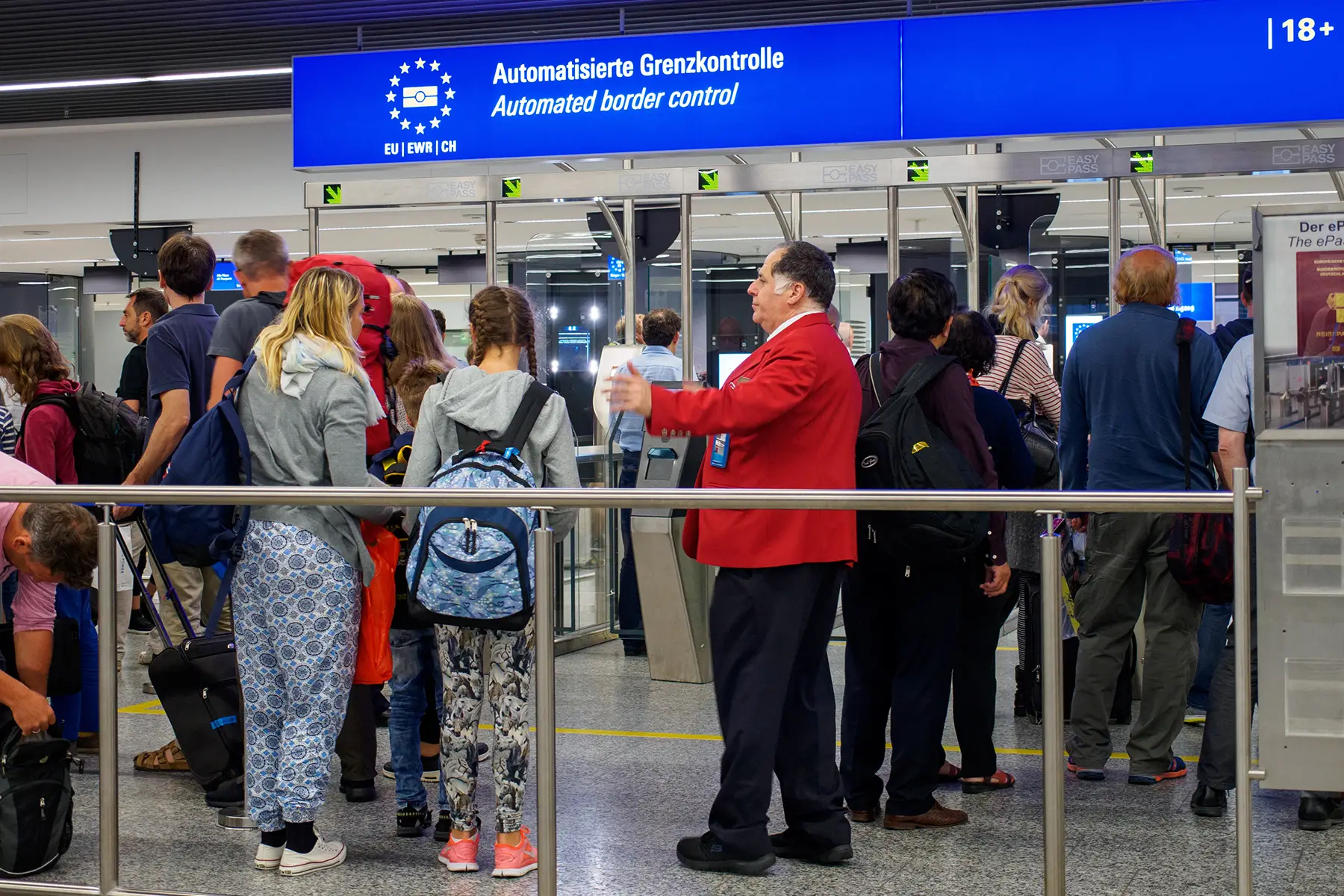
The Federal Office for Migration and Refugees (Bundesamt für Migration und Flüchtlinge – BAMF) oversees visas and residence permits in Germany. BAMF is part of the Federal Ministry of the Interior and Community (Bundesministerium des Innern und für Heimat – BMI).
Who can move to Germany to join family?
Who does not need a family visa to move to Germany?
EU/EFTA citizens have freedom of movement to live and work in Germany. This means if you’re from an EU/EFTA country, you won’t need a German family reunion visa to join your relatives. However, you must register with your local residents’ registration office (Einwohnermeldeamt) if you plan to stay longer than three months.
Additionally, if you stay for more than three months and don’t plan to work or study, you need to show you can support yourself without using state funds.
Who needs a family visa to join family in Germany?
All nationals from outside the EU/EFTA need a family visa or residence permit to join relatives in Germany. You will need to apply for your visa in your home country before you travel. However, Germany has agreements with many countries to allow citizens to enter the Schengen Area and stay for up to three months without a visa.
If this is the case, you’ll need to apply for your German residence permit from your local immigration office (Ausländerbehörde). You need to do this within three months of your arrival.
UK nationals since Brexit
Following the implementation of Brexit on 1 January 2021, the UK is no longer an EU member state. The country is now treated as a third country. Consequently, UK nationals can no longer move freely to Germany without a visa or permit. However, the UK is among the 62 nations whose citizens enjoy visa-free entry to Schengen Area states. If you come from the UK to live with relatives in Germany, you won’t need to get a visa before you travel. However, you will need to apply for a German residence permit within three months of arriving.
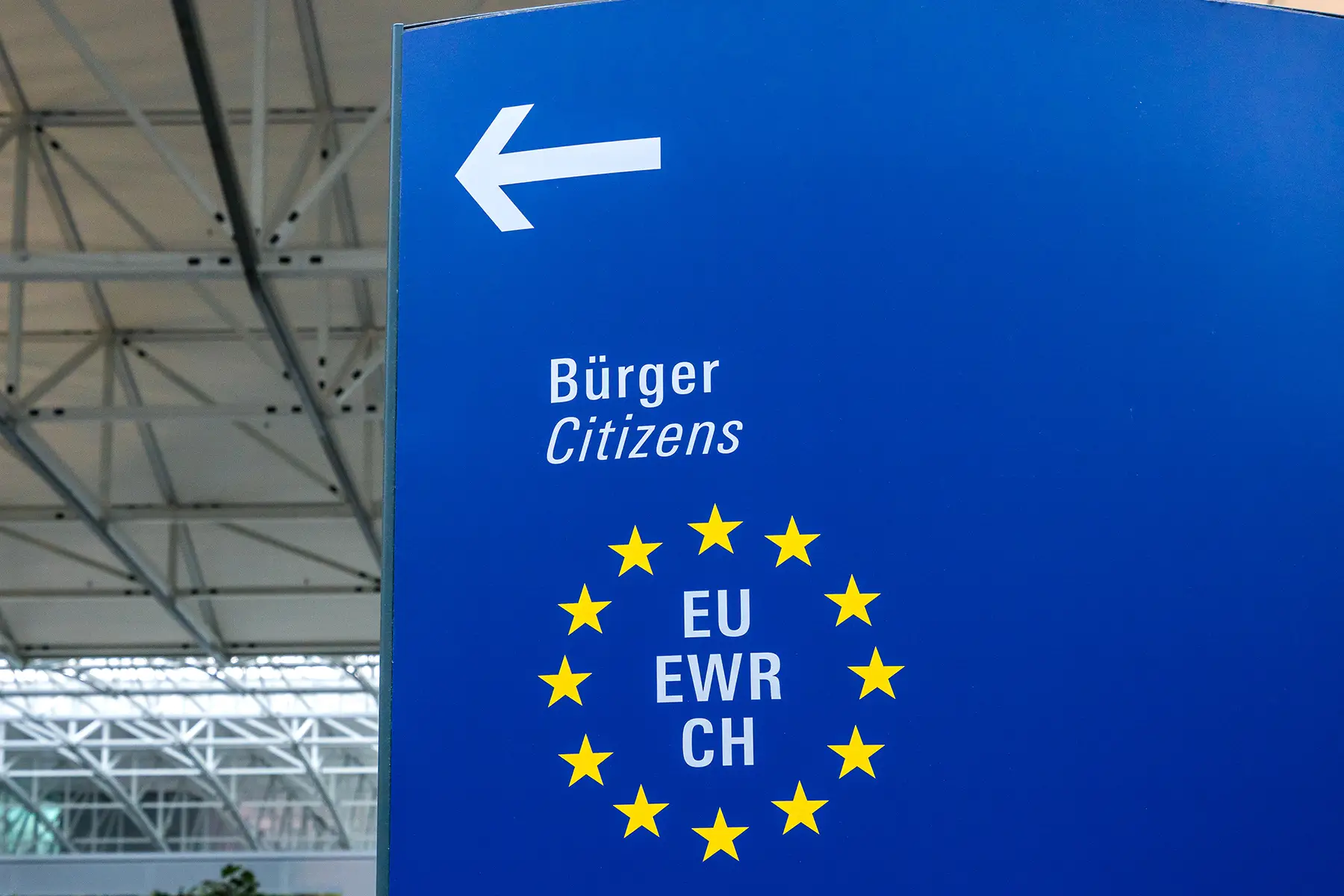
UK nationals who were already living in Germany before 1 January 2021 can benefit from the terms of the Withdrawal Agreement if they applied for a new residence card before 30 June 2021. This gives them rights similar to EU/EFTA citizens in Germany, including family reunion rights. If your family member is a British national with a German residence card under the terms of the Withdrawal Agreement, read the section below on visas to join EU/EFTA nationals in Germany to find out more.
You can learn about the rights of UK nationals living in Germany on the German Ministry of the Interior website and the UK government website.
Family visas to join German nationals in Germany
Who can apply?
You can join relatives who are German nationals living in Germany if you are a:
- Spouse or legal partner
- Dependent child aged under 18
- Parent of a German child aged under 18 and have custody rights
The family member you are joining must be a German resident, and you will need to live with them when you arrive in Germany. Other relatives, such as grandparents, uncles, or aunts, can also apply if they are dependents and intend to live in the same household. Applications are assessed on a case-by-case basis.
You can also apply for a visa to marry a German national in Germany. If you plan to live in Germany, you must apply for a residence permit.
Visa length
In Germany, this family reunion visa is generally issued as a temporary residence permit. After three years on a family member permit in Germany, you can usually apply for permanent residence.
Visa entitlements
You can work or study on a family reunion visa in Germany. You may also be able to set up your own business if you can prove that you have the necessary finances and that your business idea could positively impact the German economy. However, you will have limited access to public funds until you start working and making tax and social security contributions in Germany.

How to apply
You can apply for this visa at the German embassy or consulate in your home country or at a visa application center. In most cases, you will need to make an appointment and bring the following:
- Completed application form
- Valid passport or photo ID
- Biometric passport photo
- Proof of relationship to your family member, for example, a marriage or birth certificate
- Evidence that you have custody rights if applying to join a child under 18
- Proof of at least A1 German language skills if applying as a spouse/partner, or evidence that you will enroll on a language course in Germany
- Evidence of German nationality of your family member, for example, their passport or birth certificate
- Proof of health insurance
Applications usually take between 6-12 weeks to process.
Visa costs
The standard cost of this visa is €75 for adults and €37.50 for children.
Visas to join other EU/EFTA nationals in Germany
Who can apply?
The following relatives can join EU/EFTA nationals in Germany:
- Spouses and legal partners
- Children under 21
- Older children, if they are dependents
- Parents of children under 18
- Any other dependent relatives who are direct descendants or ascendants
There is no prerequisite for German language skills with this family reunion visa in Germany. However, you will need to prove that you can support yourself financially through your own income or that of your family member. In addition, if you apply as a parent of a minor, you must show that you can also financially support them.
Visa length
You will receive a temporary visa or residence permit that is usually valid for up to five years or renewable for up to five years. After five years on a temporary permit, you can apply for permanent residence in Germany.
Visa entitlements
You can work or study on this family reunion visa in Germany. It also allows you to set up your own business, providing you have enough funds available, and your business idea could benefit the German economy. However, you will have limited access to public funds until you start working and making tax and social security contributions in Germany.
How to apply
You can apply for this visa at the German embassy or consulate in your home country or at a visa application center. In most cases, you will need to make an appointment and bring the following:
- Completed application form
- Valid passport or photo ID
- Biometric passport photo
- Proof of relationship to your family member, for example, a marriage or birth certificate
- Evidence that you can financially support yourself while in Germany, plus proof that you can support your child if applying as a parent of a minor
- Proof of EU/EFTA nationality of your family member, for example, a passport or birth certificate
- Proof of health insurance
Applications typically take between 6-12 weeks to process.
Visa costs
The standard cost for this visa is €75 for adults and €37.50 for children.
Family reunion visas to join third-country nationals in Germany
Who can apply?
The following family members can apply for this visa:
- Spouses and legal partners
- Children aged under 16
- Children aged 16-18 if they have at least C1 German language skills and join within three months of parent(s) arriving or if parents have permanent residence
- Other dependent family members, in some instances, decided on an individual basis
The family member living in Germany must be able to accommodate any relatives joining and financially support them if they cannot support themselves.
It is also possible to apply for a visa to marry a foreign national in Germany if they have a valid residence permit. However, you will also need to apply to a residence permit if you plan to live in Germany.
You cannot join family members in Germany in certain instances, for example, if they have committed serious crimes or have a deportation order against them.
Visa length
You will initially get a temporary German visa or residence permit, which is valid for the same length of time as that of your family member, up to a maximum of five years. After this, you can apply for permanent residence in Germany.
Visa entitlements
You can work or study on this German family reunion visa. You may also be able to set up your own business if you can prove that you have the necessary finances and that your business idea could benefit the German economy. However, you will have limited access to public funds until you start working and making tax and social security contributions in Germany.
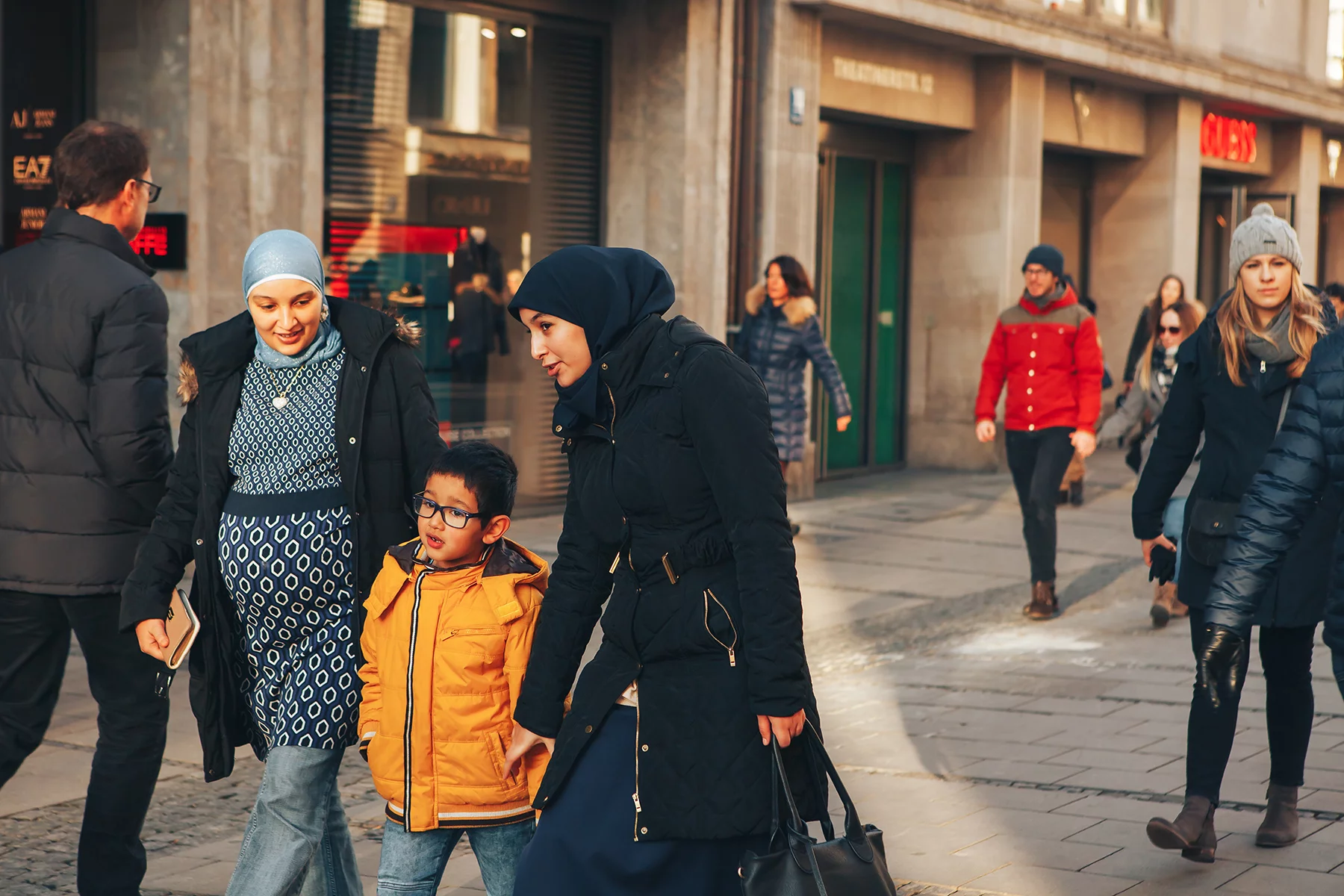
How to apply
You can apply for this visa at the same time as your family member if you want to travel with them to Germany. Alternatively, you can apply at a later date to join them. You can make the application at the German embassy or consulate in your home country or at a visa application center. In most cases, you will need to make an appointment and bring along the following:
- Completed application form
- Valid passport or photo ID
- Biometric passport photo
- Proof of relationship to your family member, for example, a marriage or birth certificate
- Evidence that your family member can accommodate you in their home
- Evidence of at least A1 German language skills for spouses (unless applying under EU Blue Card) or C1 level for children aged 16-18. For spouses, this may be waived if you can show evidence that you will enroll in a language course in Germany
- Residence permit of family member you are joining
- Proof of financial resources to support you during your time in Germany
- Proof of health insurance
Visa costs
The standard cost of this visa is €75 for adults and €37.50 for children.
Short-term visits to family members in Germany
You can apply for a short-stay Schengen visa to come and visit family members for three months or less. For anything longer than this, you will usually need a long-stay family visa. Short-stay visas cost €80, or €40 for children over six (those under six don’t need to pay). These visas are valid for a maximum of 90 days within any 180-day period across the Schengen Area. See general information on German visas and permits, including how to apply.
If you’re from one of the 62 countries whose citizens don’t need a visa for short stays, you can visit relatives in Germany for up to three months without restrictions.
Joining family members who only have a temporary visa in Germany
Germany differs from some EU member states in that it offers family visas to join third-country nationals, whether they are on a temporary or permanent residence permit. Therefore, if you come to Germany on a work visa or study visa, your spouse/partner and dependent children can join you straight away rather than waiting for any qualifying residence period.
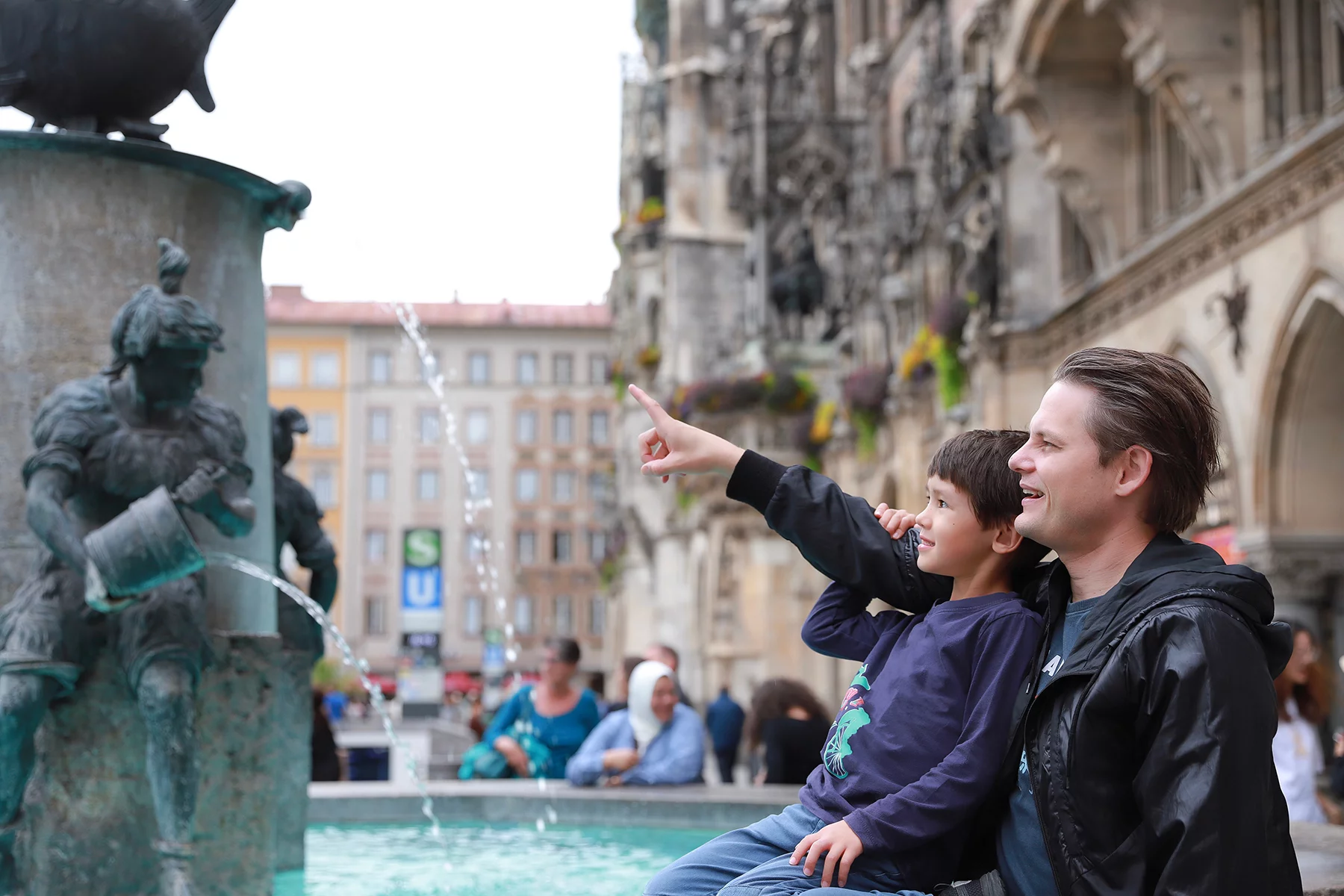
However, family members cannot join those in Germany on a short-stay visa valid for three months. Therefore, if you want to travel with or join family members in Germany for a short stay, you will need to apply for your own German visa under one of the applicable Schengen Visa categories unless you can travel to Germany visa-free.
Family visas to join refugees or asylum seekers in Germany
Family members of refugees and asylum seekers in Germany can apply for family reunification once an asylum seeker has been granted protection status. Germany has different categories of recognition for refugees. You can apply for family reunion if your relative has been granted full refugee status or subsidiary protection. If you want to apply as a family member of someone seeking asylum, you will need to make an asylum application as a family.
You can apply to join a refugee in Germany or make a joint family asylum application if you are one of the following relatives:
- Spouse or legal partner
- Dependent children under 18, including legally adopted children
- Parents of children under 18, if they have legal custody
- Other dependent relatives in exceptional cases, for example, if there are no other means of support
If you have been granted subsidiary protection in Germany, the following family members can join you if they qualify for humanitarian reasons:
- Spouse or legal partner
- Dependent children under 18
- Parents of children under 18, if they have legal custody
Germany issues a maximum of 1,000 family reunion visas a month under the subsidiary protection category.
Your relatives can apply for family reunification through the German embassy or consulate in their home country if you have been granted refugee status or subsidiary protection. You will also need to apply to your local immigration office (Ausländerbehörde), where you must submit related documentation.
Read more information on the Federal Foreign Office and BAMF websites.
When family members arrive in Germany
All new arrivals in Germany need to register with their local residents’ registration office (Einwohnermeldeamt) if staying for longer than three months, regardless of where they’re from. You should do this within two weeks of arriving. Registration is required for tax and social security purposes.
Non-EU/EFTA nationals will also need to organize a German residence permit if staying for longer than three months. Unless you have made arrangements for the permit by the time you apply for your visa, you will need to visit your local immigration office (Ausländerbehörde) to do so within three months of arriving.
Other things to consider during the first days of arriving are:
- Registering for healthcare in Germany
- Opening a German bank account
- Sorting out your utilities and telecommunications
- Getting a German SIM card
In the event of divorce or death of a family member in Germany
If you enter on a family reunion visa in Germany as a spouse/legal partner and get a divorce, or the partnership is dissolved, this has implications for your residence rights. You have a stronger case for remaining in Germany if you have been married and living in the country for three years or more. In this case, you can extend your residence permit for a year. During this time, you must find grounds for remaining in Germany independently. This might include having a job in Germany, for example.
If you have been married and living in Germany for less than three years, you can get an extension on your residence permit in certain instances. For example, if you have a child with your spouse, work in Germany, or ended the marriage due to domestic violence.

If a relative dies while living in Germany, this does not necessarily affect the visa or residence permit of family members joining them. This is the case as long as the permits were granted before the death occured. However, if your relative in Germany was providing your accommodation and/or financial support, you will need to demonstrate that you can continue to support and accommodate yourself in Germany.
Family visa complaints and appeals in Germany
If your visa application has been turned down, you can appeal the decision with the German embassy or consulate within one month of receiving the verdict.
If you are unhappy with the outcome of your appeal, you can take it to the administrative courts in Germany within one month of receiving the decision.
Useful resources
- Federal Office for Migration and Refugees (Bundesamt für Migration und Flüchtlinge – BAMF) – German government body responsible for immigration, visas, and permits
- Federal Foreign Office (Auswärtiges Amt) – government information about visas
